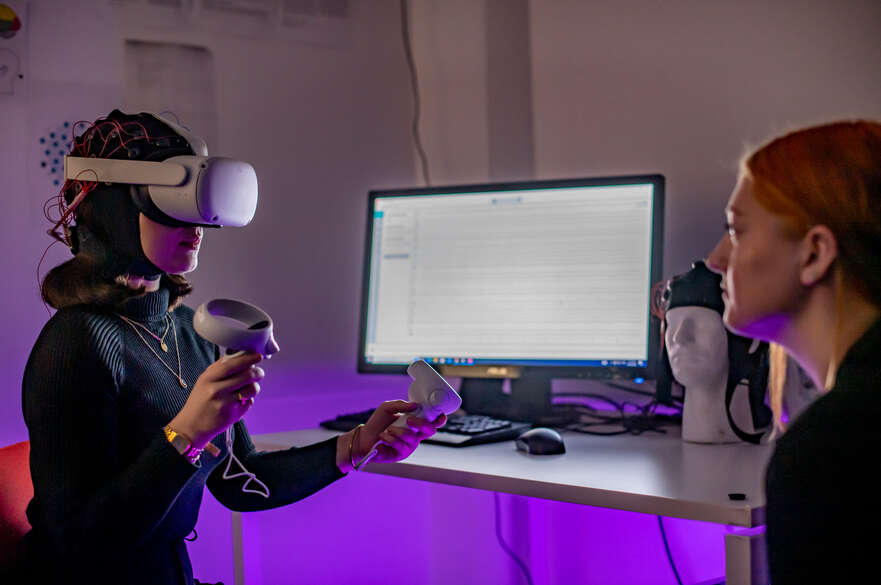Psychology Twilight Talk
City Campus

Join our latest Twilight Talk series event and discover fascinating insights into the human mind, featuring our expert academics here at NTU.
- From: Tuesday 23 April 2024, 5 pm
- To: Tuesday 23 April 2024, 7.30 pm
- Booking deadline: Monday 22 April 2024, 11.59 pm
- Download this event to your calendar
Event details
Join us for our Twilight Talk series to discover fascinating insights into the human mind, delivered by our expert academics here at NTU. Whether you're a dedicated A-level or BTEC student, a passionate teacher, or a curious parent, these talks will ignite your curiosity and deepen your understanding of the complexities of human behaviour. We will be covering the below topics and unravelling the mysteries of human psychology in an engaging and accessible manner.
Join us for an evening of psychology that promises to be relevant, interesting, and thought-provoking – a must-attend event for anyone eager to explore the fascinating world of psychology. Refreshments will be provided.
If you have any further questions, please contact rici.krieger@ntu.ac.uk
You must be 16 or over to attend this event.
Programme
Prof. David Daley: "The impact of ADHD on academic attainment"
Before this talk you may not have ever heard of the phase "Ecological Validity", which in Psychology is very much about how we can measure behaviour in real world settings. In this brief talk, Professor David Daley will outline two published research studies focusing on the impact of Attention Deficit Hyperactivity Disorder (ADHD). Specifically, he will explore how ADHD impacts on outcomes important to adolescents; namely GCSE performance and driving, research that was conducted with high levels of ecological validity.
Dr. Treshi-Marie Perera: "Bodily illusions - Changing how the body looks and feels"
How well do you know your body?. If one day you woke up to find that your body has shrunk to the size of a doll, or that you have grown very tall (much like Alice in Alice in wonderland), do you think that you will still recognise your body as belonging to you? Research tells us that our brain has a very flexible representation of our body. What we know about our body is a result of how our brain puts together different types of information, including what we see and feel. This presentation will explore how changing what we see and feel can influence how we experience our body.
Dr. Louise O'Hare: "Migraine - Headaches, hallucinations and hyperexcitability"
People really do see the world differently, and psychology can help us understand how and why. This is important because for some people, like those with photosensitive epilepsy and migraine, what they see can have serious health consequences, such as triggering seizure or migraine attack respectively. But how are the visual areas of the brain different in migraine? By measuring the brain’s response using electroencephalography (EEG) we can understand more, and possibly work to develop therapies to prevent migraines occurring and alleviate the symptoms.
Past event


